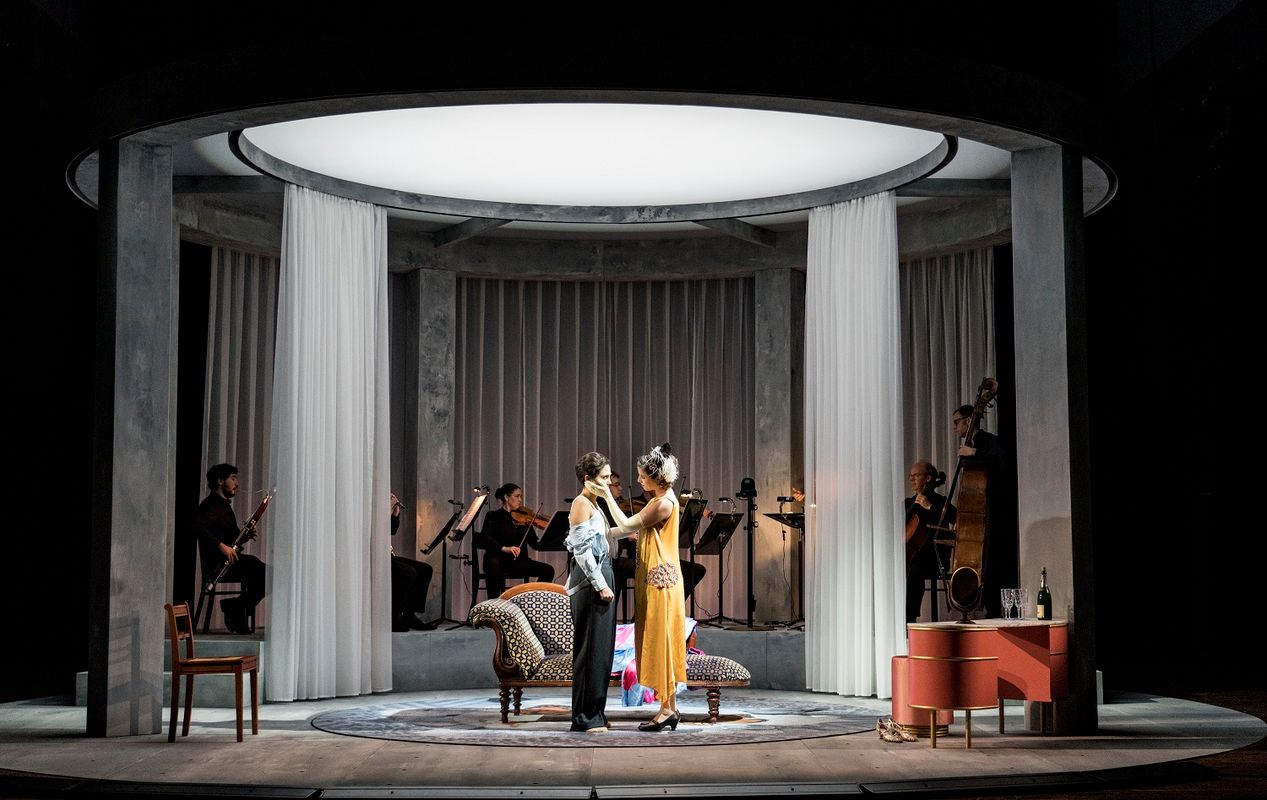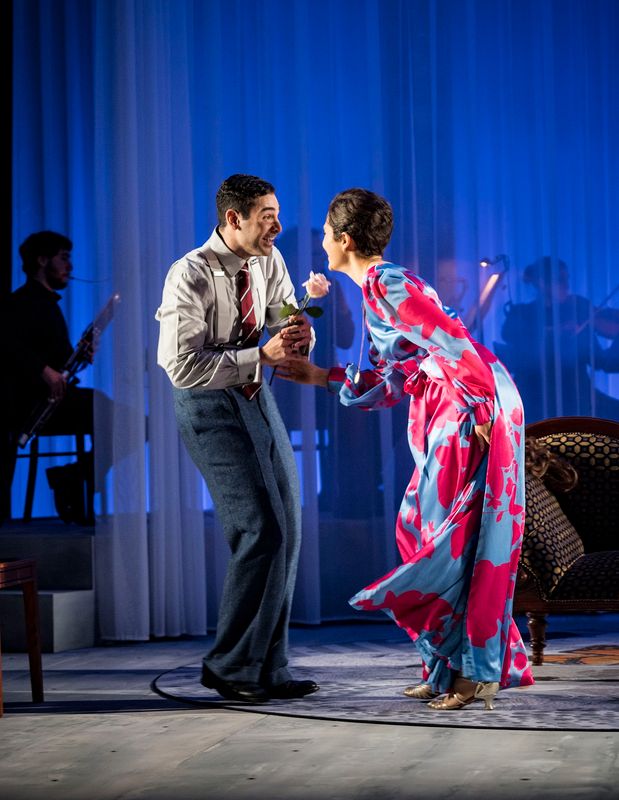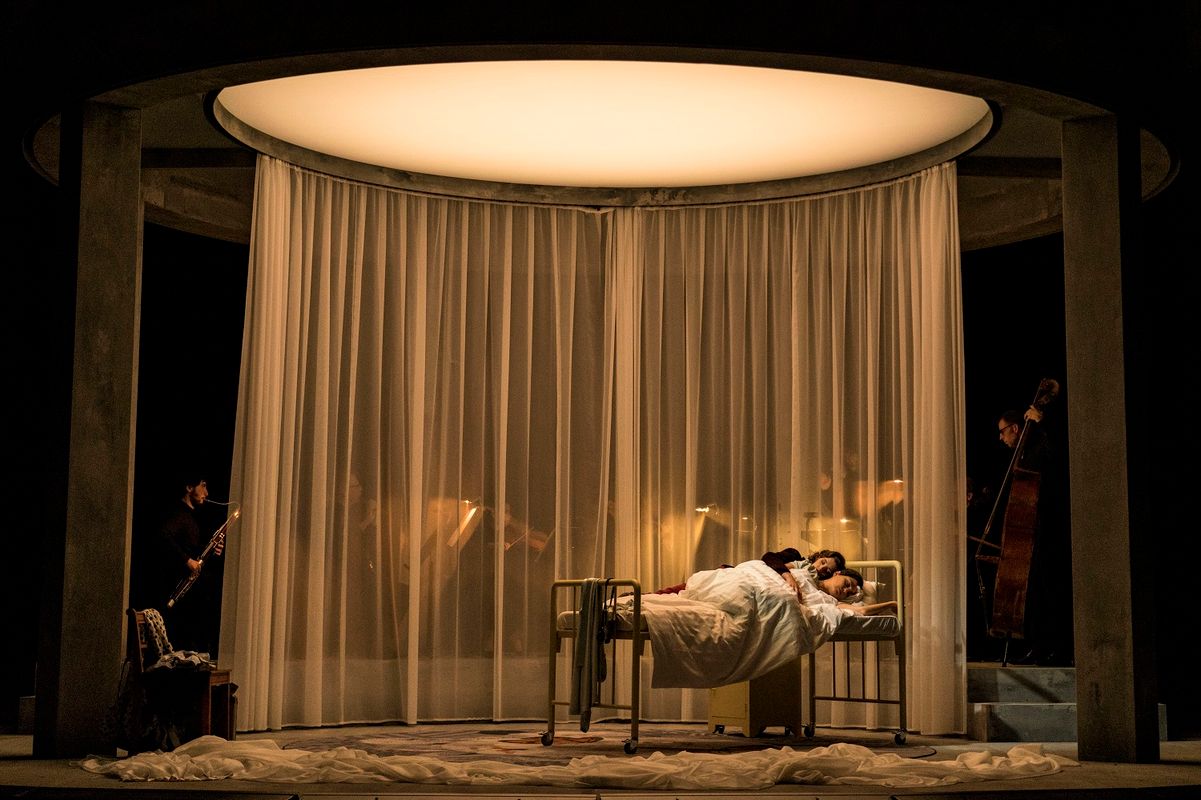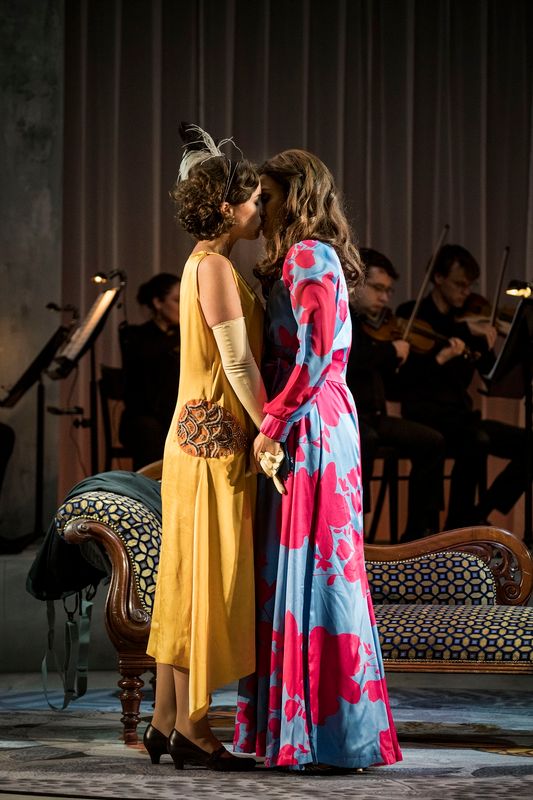
La Traviata
-
7 dec20:00 - 21:30TR25 Schouwburg, RotterdamGrote zaal
In Verdi's time, a courtesan was problematic marriage material, now it's people born in the wrong body. Director Dorike van Genderen raises existential questions.
At a party, Violetta (then still in male form) meets the attractive Alfredo Germont, who has been in love with her for months. She is very fond of Alfredo, but initially rejects a relationship because she has not yet completed the transition to woman. Yet Violetta and Alfredo eventually fall for each other.
Alfredo's father disapproves of the relationship. He fears that his daughter Elba will no longer qualify for a good marriage and asks Violetta to break up with Alfredo. Touched by the innocence of young Elba, Violetta sacrifices herself and ends her relationship with Alfredo. He is furious.
When Violetta becomes very ill, the characters from her life gather around her sickbed. Violetta knows she's dying, but she's not sad because she can finally be who she really was all these years.
In Giuseppe Verdi's original version, La traviata (literally the wanderer) was a courtesan, and therefore not an acceptable suitor for the bourgeoisie. In an adaptation, director Dorike van Genderen looked for a contemporary equivalent of a woman who is looking for herself and for love, and who has to fight against social prejudices:
“The Netherlands likes to present itself as a progressive country. A country where everyone, regardless of gender, religion and skin color, feels accepted. Unfortunately, that doesn't always turn out to be true. Legally yes, but socially, for example, transgenders and transsexuals still fight every day for their right to exist. After fighting themselves psychologically and physically, they then have to fight for their place in society. And the partners of trans men and trans women must fight as well. They also encounter great misunderstanding. Therefore, in this concept Violetta is a trans woman. In the beginning we still see her as a man, but she already presents herself as a woman. At the end she had the sex reassignment surgery and physically became what she already was mentally: a woman.”
Her version is inspired by the true story of Lili Elbe (born Einar Wegener), one of the first men to undergo sex reassignment surgery in the 1930s.
Team
muziek Giuseppe Verdi libretto Francesco Maria Piave bewerking & regie Dorike van Genderen muzikale leiding Alistair Digges decor Juli Weideli kostuums Julie Weideli licht Tim van ’t Hof met Aylin Sezer, José Romero Aleš Jenis, andere zangers en acht musici op het toneel







